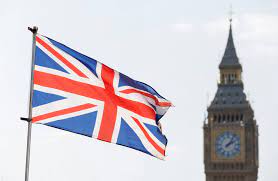Sterling dips as UK economy shrinks more than expected

London: The pound weakened against the dollar on Wednesday after Britain’s economy contracted at its sharpest rate in seven months in July as strikes and poor weather weighed on output.
Sterling was down as much as 0.4% against the dollar at $1.2442, its lowest level since June 8. It was last at $1.2472.
The euro strengthened as much as 0.3% against the British pound to 86.3 pence, hitting its highest level in a month, although was last little changed at 86.08 pence.
The UK economy contracted by 0.5% in July, figures from the Office for National Statistics (ONS) showed, a worse-than-expected contraction of 0.2% and the largest drop in monthly output since December 2022.
“The decline in GDP in July suggests that underlying growth has lost momentum since earlier in the year,” said Paul Dales, chief UK economist at Capital Economics. “That would make sense given that the dampening effect of higher interest rates should be starting to be felt a bit harder now.”
The Bank of England has raised interest rates 14 times since December 2021, taking them to a 15-year high of 5.25%.
Money market traders are pricing in around an 80% chance policymakers will raise interest rates again at next week’s meeting and a 20% chance rates will remain on hold. Pricing for the terminal rate has meanwhile come down to around 5.6% from more than 6%.
“In my view, market pricing is still over the top, but it’s more in line with where it should be,” said Michael Brown, analyst at TraderX.
“We are probably going to see further downside in the pound and I still don’t see much reason for optimism on the UK economy going into the autumn.”
The pound peaked above $1.31 in mid-July but has since fallen over 5% as the dollar, measured against a basket of currencies including the pound, has rallied to its highest level since March.
“You’ve got this immaculate disinflation in the U.S., with the labour market remaining strong and GDP growing by 2% every quarter,” Brown said.
“I don’t see any reason to bet against the dollar at the moment as the U.S. economy has everything going for it.”
Other factors also weighed on British growth in July, the ONS said, including strikes in hospitals and schools, while wet weather hurt output in retail and construction sectors.
Wednesday’s data also did not include recent, substantial upward revisions to the performance of the economy up to the end of 2021.





